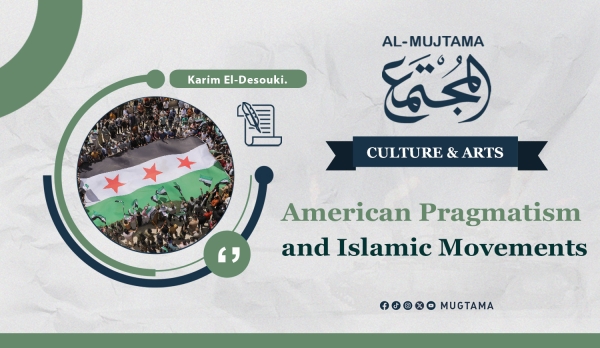Political Islam and the International System
After the success of the Syrian revolution in overthrowing Bashar al-Assad's regime at the hands of Islamist militants, discussions have resurfaced in the media about what is known as "political Islam" and the possibility of integrating it into the existing international system, led by the West. The debate centers around accepting its representatives as heads of modern nation-states versus criticisms that they follow a path of domestication outlined by their enemies.
The Concept of Political Islam
"Political Islam" is a term promoted by Western media for decades, originating from a perspective rooted in its Christian cultural context. This perspective views religion as having its place in places of worship, and when it moves beyond that, it becomes political. Therefore, movements that arise from an Islamic perspective regarding public affairs are considered to represent political Islam. Muslims, however, believe their religion encompasses prayer, worship, and all aspects of life and death, all dedicated to Allah, the Lord of the worlds.
Challenges Faced by Islamic Movements
Islamic movements face significant challenges within the existing international system, which often considers them a threat to its stability. This stems from the position of the dominant great powers, led by the United States, representing an extension of the British colonial model from a distance. Loyalty and obedience to the Western master often manifest as enmity towards Islamist movements with wide popular extensions.
Western Media and Historical Context
The historical truth shows that American thought, unlike European thought, has offered humanity only one philosophy: pragmatism. Its pioneers, Charles Sanders Peirce, William James, and John Dewey argued that truth is not absolute but rather what proves successful and effective in application. American policy exemplifies adopting contradictions, which can be attributed to the current hypocritical Western stance towards the Islamic situation in Syria.
Read also: The Moral Role of the State in Islamic Thought
The Moderation Narrative
The media propaganda machine in the West speaks of moderation that has arisen in the ideas of Syrian Islamists, whom Washington previously classified as terrorists. In reality, this is merely a strategic assessment adopted by "remote colonization" circles, which deemed it necessary to dismantle the Iran-backed resistance axis after the "Al-Aqsa Flood" in Gaza, by allowing enemies of this axis among the Islamists to gain space.
Western Permissiveness and Recognition
The regional recognition of these revolutionaries would not have occurred without Western permissiveness. Those in charge of the new administration must be aware of this as they seek to buy time to achieve their goals, aligned with the objectives of the Western colonizer. The West does not aim to spread democracy or moderation, as its propaganda claims, evidenced by the bloodshed in Gaza and coup attempts against moderate Islamic models.
The Pragmatic Approach
Thousands of moderates are languishing in oppressive regimes' prisons supported by Washington, while the pragmatic decision-maker in the United States negotiates with representatives of the Afghan Taliban. This reality should be a lesson for Islamists of all stripes.
Lessons from the Taliban and Syrian Organizations
The reality imposed by the Taliban in Afghanistan and Syrian organizations, along with other Islamic movements possessing varying levels of power, has enabled them to exert strategic influence and push American pragmatism towards a realistic approach. Meanwhile, moderate movements are often crushed without concern in Western media.
The Future of Islamic Movements in Syria
The experience of the new administration in Syria will reveal whether the integration of Islamists into the international system will transform them into secular agents or allow them to impose a new reality. Some researchers, like Olivier Roy, believe this integration may weaken the Islamic identity of the movements, while supporters argue that Islamists can rearrange their priorities without abandoning their Islamic project.
Challenges and Confrontation
The movements referred to as "political Islam" face significant challenges within an international system that seeks to contain them and turn them into subservient entities. Working within this system appears difficult, and policies of containment in Syria are likely to lead to future confrontation. Success will depend on who can buy time and leverage it to their advantage.


